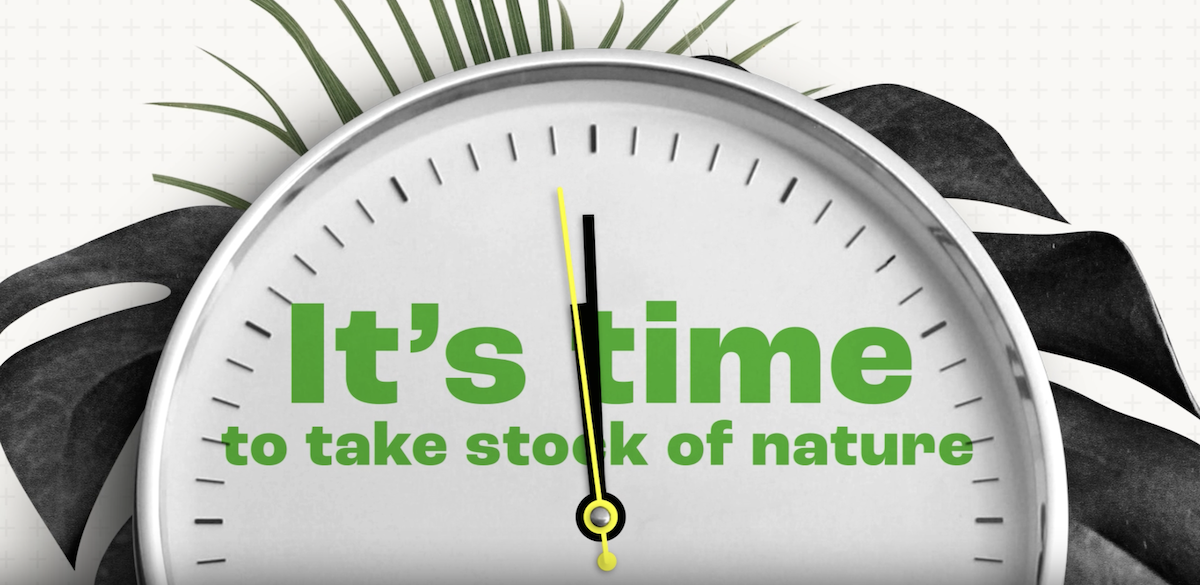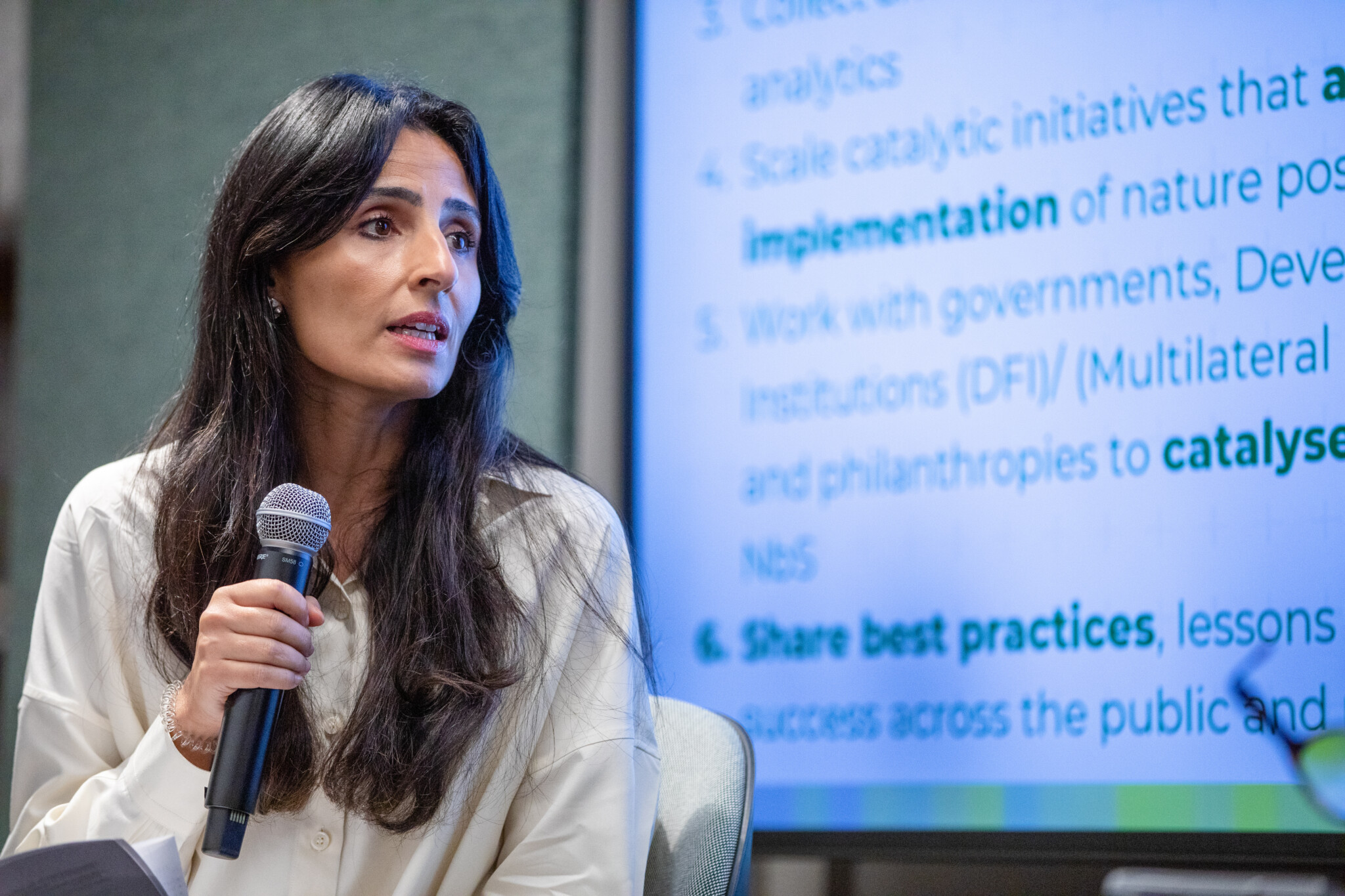
At New York Climate Week, more than 95 leaders and experts from business, science, NGO and youth groups released an open letter that urgently calls on UNFCCC Parties to deliver on their climate and biodiversity commitments and disclose their implementation plans as part of the Global Stocktake negotiations.
The letter, titled It’s Time To Take Stock of Nature, follows on the heels of updated research launched today from Nature4Climate that indicates that more than half (52%) of joint global commitments tracked since 2019 related to nature-based climate action have published little to no evidence of progress in the past six months or more.
Lucy Almond, chair of Nature4Climate said: “Our recent analysis of GST submissions and progress on commitments made at COP 26 and 27 show that what is being delivered and tracked in the public domain is scant. This letter shows that despite the diversity of voices that compose our networks, non-state actors are united in calling for accountability for the growing destruction of our natural ecosystems. We must take immediate action to halt and reverse it.”
The data is featured in the latest update of the NbS Commitment Tracker, which assesses 127 joint commitments by countries relating to nature, from the 2019 UN Secretary General summit to the present day. The updated tracker also highlights that the evidence of progress of more than 20% (23%) of commitments were downgraded from “complete, fully on track or substantial evidence of action or progress” to showing “some evidence of action or progress” in comparison to the previous year’s publication.
This finding is consistent with the concerning GST synthesis report released on September 8th, which revealed that existing national pledges to cut emissions are insufficient to keep temperatures within the 1.5℃ threshold, indicating that the gap between ambition and implementation is widening.
Further research also reveals that the story is no different on the policy landscape. An updated AI evaluation of current national policies worldwide found that only 12% of policies have clearly allocated budgets towards implementation of nature-based solutions (NbS). This highlights a lack of funding for NbS, especially considering the estimated overall funding gap of up to 4.1 trillion USD by 2050. The newly updated NbS Policy Tracker, powered by AI, analyzed 385,000 online sources and identified more than 600 new nature-enabling policies from 175 countries since its last edition in 2022.
CEOs, founders, directors and policy leads from a variety of organizations, such as Birdlife, Wetlands International, Salesforce, WBCSD, She Changes Climate, Hispanic Access Foundation, The Nature Conservancy, WWF and Conservation International are amongst those who have already signed the letter calling for accelerated action ahead of the ministerial meetings and workshops taking place on the Global Stocktake in December.
Razan Al Mubarak, President of the IUCN and UN Climate Change High-Level Champion said: “COP28 and the first Global Stocktake is a vital course-correcting moment. The science is clear that we must decarbonize, but it is also critical to ensure that we are protecting, managing and restoring nature. That’s why business, NGO, and scientific leaders from across the world are calling for Parties to put nature, and the communities stewarding the biodiversity we have left, at the heart of the Global Stocktake outcome”.

Safeguarding the rights of Indigenous Peoples and Local Communities
The updated trackers show that only 11% of joint global commitments focus on Indigenous Peoples and Local Communities, despite managing at least one quarter of the world’s lands and 80% of the world’s biodiversity.
The open letter specifically calls for Parties to implement ambitious regulatory safeguards for Indigenous Peoples and local communities as a result of the Global Stocktake outcome. In addition, they are calling for these to be legally binding by the UN Declaration of the Rights of Indigenous Peoples.
Raysa França, Global Engagement Director, Youth4Nature: Together with youth, Indigenous and front-line communities, we raise our voices worldwide, demanding that nature-based solutions are guided by a legal framework, community leadership, and justice. Let’s stand firm for ecosystem integrity and rights-based approaches. We refuse to back down, and we urge you to stand with us.
Other demands include asking governments as part of the Global Stocktake outcome to:
- Publicly announce and publish plans for implementation of nature-based solutions
- Commit to collaborate with other Parties to deliver finance and share technical support targeted to deliver the greatest impact to protect, manage and restore nature.
- Establish mandatory and voluntary measures to create a level playing field and incentives for businesses and financial institutions to scale their investments towards a nature-positive, net zero economy.
Tim Christophersen, Vice President of Climate Action at Salesforce said: “In response to the Global Stocktake, Parties have the opportunity to unlock finance and accelerate action to achieve a nature-positive, net-zero world. We must see commitments turn to action, so that we can ensure a habitable planet for future generations”.
The letter was launched on Monday, September 18th, at the opening of the Nature Positive Hub at New York Climate Week. The hub is a place to convene events and speakers working on nature, with over 40 events planned on diverse topics from nature finance and biodiversity credits, to nature technology and Indigenous rights.
Open letter signatories – Available on request. Please send an email to mariana.ceccon@tnc.org
NOTES TO EDITOR
The NBS Commitment Tracker offers an assessment of the progress made on various joint action commitments, primarily spanning the period from 2019 to 2023, although some commitments date back to 2011. It serves as a simple transparency test: have organizations published evidence of action on the commitments they have made?
Our evaluation is based on thorough desktop research, and we remain committed to maintaining its accuracy by incorporating any additional information as it becomes available. The regions in question are categorized according to the geographical areas where these commitments are being implemented. To enhance clarity, we have implemented a color-coded methodology that provides a visual representation of the degree of progress communicated and achieved for each commitment: Red – No published evidence of action or progress; Yellow – Some evidence of action or progress; Light Green – Substantial evidence of action or progress; and Green – Complete or fully on track to meet commitment.
Nature4Climate in partnership with Arboretica annually publishes the world’s largest Nature-based Solution Policy Tracker for a 3rd year. Leveraging artificial intelligence, the tracker analyzed over 385,000 online sources across English, French and Spanish, and identified over 600 new nature-enabling policies from 175 countries, including 29 french-speaking and 20 spanish-speaking nations that are signatories to the Paris Agreement.
The 3rd edition of the tracker covers policies under 22 nature-based solution topics, and evaluates the policies under 9 criteria including equity consideration, adaptation measures and IPLC rights etc. In addition, the tracker selected 8 case studies representing the best practices on nature-based solutions policies.